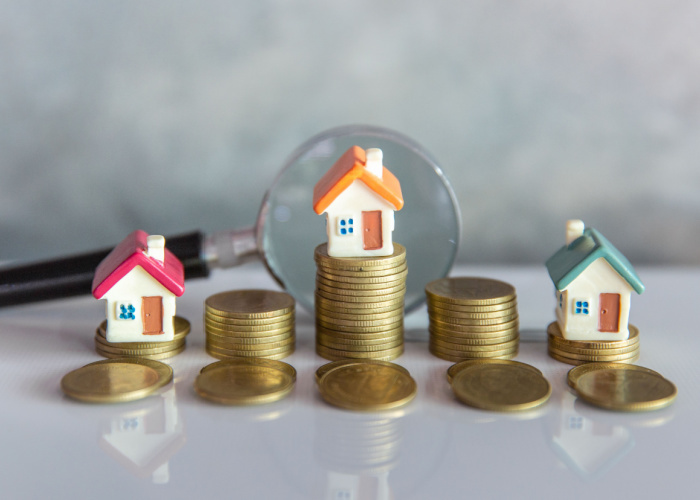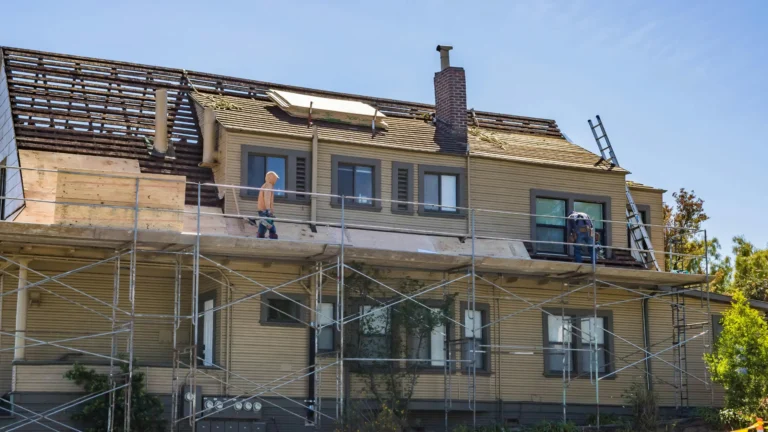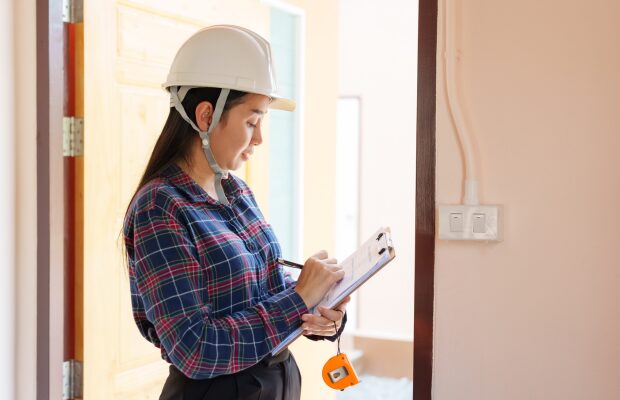If you’re thinking of selling, the first step is to get a better understanding of what your property could be worth.
That means booking an estate agent valuation – but what does this entail?
We’ve got all the answers for you below…
What is a property valuation?
When an agent carries out a property valuation, they’ll provide an assessment of your home’s value based on:
- Sale prices of similar properties in your area
- Current prices and property market performance in your area, including current buyer demand and sales competition
- Their internal and external inspection of your property and its features
- The size of the plot and building and potential for future development
What to expect from a house valuation
The best first step before selling your home is to book a full market appraisal
with a local estate agent.
This will give you an accurate picture of what your property could sell for in the current market.
When an estate agent carries out a valuation, you can expect them to:
- Collate all the latest market data and recent sale prices of similar homes in your area, so they can make a comparison with your property
- Use their local knowledge or explore the area to assess amenities, transport links and school catchments – all of which can affect the value of your home
- Carry out a full and detailed inspection of your property’s exterior and plot, interior, features, fixtures, and fittings
- Take measurements of room sizes and make detailed notes of specific features or selling points
What the agent will look for during a valuation
As your estate agent inspects your home, they’ll be looking at:
1. The type of property you own
The agent will consider the type of property you own when assessing its value, taking into account the demand and popularity of certain homes in your area, including:
- Detached houses
- Semi-detached houses
- Terraced houses
- Purpose-built flats and apartments
- Converted flats and apartments
Your agent will also consider your property’s tenure, with freehold homes usually commanding a higher value as, unlike leasehold homes, the land they sit on is included in the sale.
Other specific details your agent will factor in include:
- The size of the plot your home sits on
- The space around your property and overlooking
- The age of your home
- Any listed status
- Whether it sits in a conversation or Article 4 area
- Which council tax band it’s in
2. The condition of your home
A well-maintained home with very few issues will almost always be worth more than a comparable home in need of major work.
During your agent’s inspection, they’ll look carefully at:
- Your property’s structure and roof
- All interior fixtures and fittings
- Your home’s décor, including the condition of carpets
- The age and condition of windows, doors, and woodwork
- The age and condition of electrics and plumbing systems
- Any signs of damp, subsidence, or woodwork rot
They’ll also ask you any questions they need answers to, which will give them a better idea of your property’s history – for example, the age of the windows or the last time they were replaced.
3. Your property’s square footage and potential for development
The size of your property in square feet will play a big part in its valuation.
But your agent will also be considering:
- The flow of the space you have and the way it’s divided up into useable space
- The correlation between the number of bedrooms and bathrooms
- How useable the outside space is and which direction it faces
- How much storage the property offers
As well as the existing space, the agent will take into account any potential for expansion or development.
A big garden plot, for example, could mean your home is suitable for a large rear extension – perhaps to house an open-plan living space or kitchen/diner.
And a big loft space could mean the potential to convert this into a large master suite.
5. Off street parking
Off street parking is hugely desirable for buyers in urban areas, so your agent will also assess your property’s parking arrangements when conducting a valuation.
If you live in a flat, an allocated parking space could improve your home’s value when compared with a similar flat that only offers on-street parking, for example.
If your home doesn’t offer off-street parking, the agent will look at whether a permit system is in place and how much parking is available.
6. Amenities and transport links
Properties close to good transport links or useful amenities may be worth more than similar homes further away.
Your agent’s local knowledge should play a part here and they should be aware of nearby amenities and any plans for development nearby.
Which school catchment your property sits in can also affect its value and your agent should take this into account when submitting a valuation.
8. Fixtures and fittings
A valuation will see your agent assess the quality and condition of your main fixtures and fittings.
Fixtures like sinks, integrated appliances, worktops, and kitchen units can have a big effect on your home’s value.
The agent should look at how items like these look in comparison with the rest of your home and should also ask you what you would potentially include or exclude with any sale.
9. Special or period features
Homes with unique or special period features can really stand out from other comparable properties.
They’re usually valued higher, too.
Your agent should spend some of their appointment looking at your home’s special features and factoring them into their valuation figure.
High quality Victorian, Edwardian or Georgian features could include:
- Original decorative fireplaces
- Parquet flooring
- Decorative cornice or woodwork
- Sash windows
How to prepare for a valuation and get the most from it
Once you’ve booked your market appraisal and valuation appointment with your estate agent, it’s time to prepare!
Getting your home (and yourself) ready for a valuation can help you to get the most from it.
You should:
- Make sure your home is clean and tidy
- Declutter and remove some items so you can show off the space your home offers
- Open blinds and curtains so natural light enters your property
- Arrange your furniture to increase the feeling of space
- Write down a list of questions you want to ask your agent
- Make sure you have access to any relevant documentation, such as planning permissions, your Energy Performance Certificate or guarantees for any work you’ve had done
To find out the value of your property book your valuation today.








